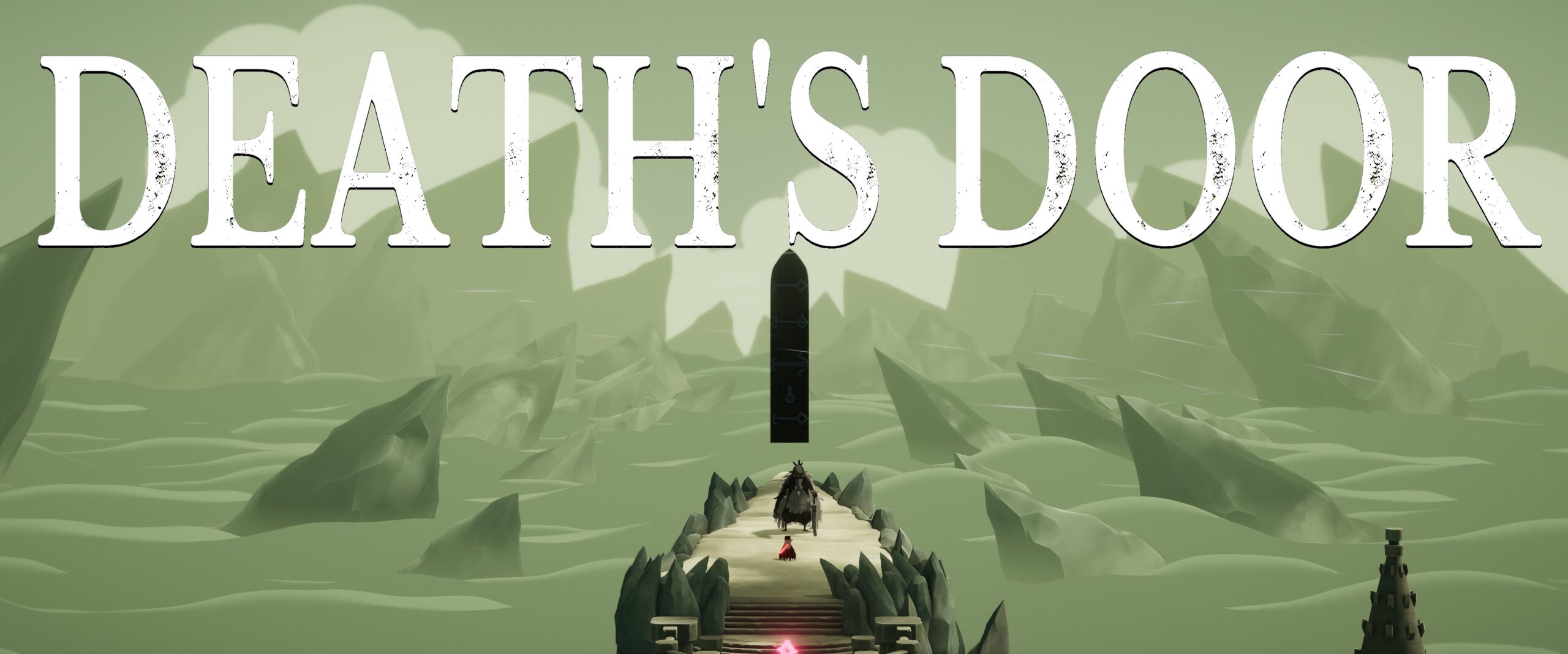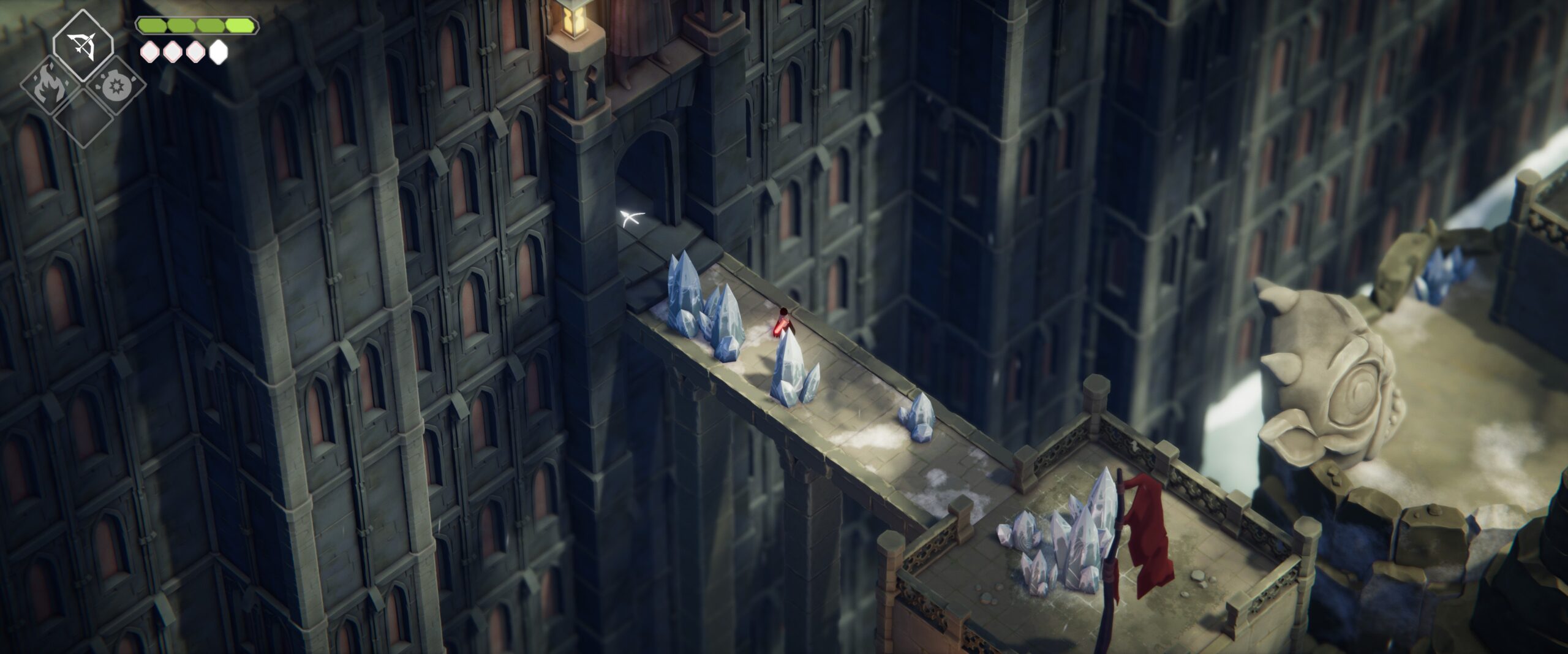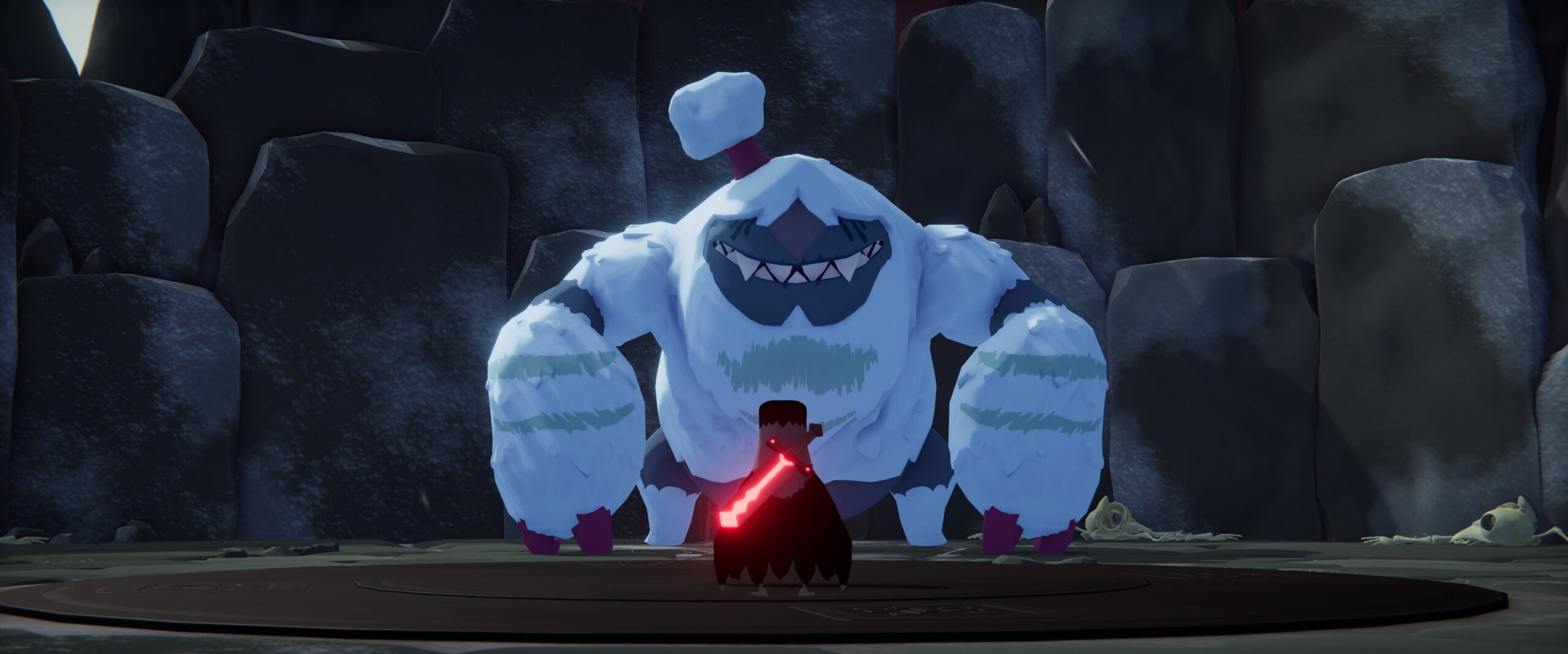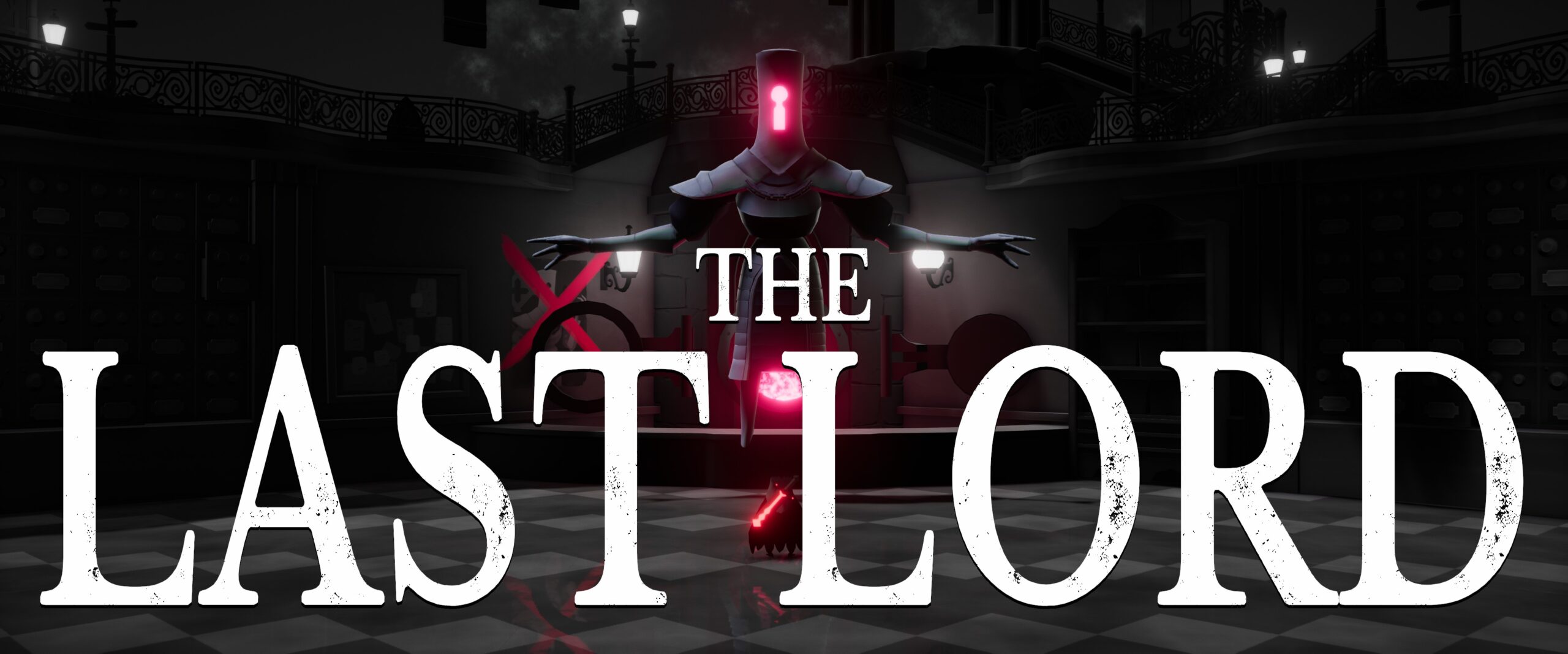Gotta admit, before playing Hades I wasn’t super into the isometric hack and slash styled games at all. In my head they were too close to the bullet hell genre that I’ve never been able to get into, the amount of attention required to ensure you don’t get murdered by a stray projectile being too much for this creaky old gamer. However Death’s Door caught my eye, not only due to some of the shared visual elements but also due to a lot of other reviewers seemingly putting them on the same level. I can say now, having completed my first playthrough, that whilst they certainly share a common set of inspirations the experiences really are chalk and cheese, with Hades still being the clear leader by far. This is not to say that Death’s Door isn’t worth checking out though as it certainly has enough legs to stand on its own.

You are a reaper, not the kind you’re likely familiar with but one whose job is the same: to reap the souls of those who are meant to die. You’re sent to do the usual routine on a monster who’s been…resistant to the idea of passing. After defeating it another crow appears and snatches the soul away from you. This is problematic because, for as long as you’re in this world to reap souls, you too are mortal yourself and you won’t be able to return until you bring back your quarry. It is in chasing after this old crow that you discover a world that’s been untouched by death for a long time, the souls of those dwelling there becoming large and corrupted with their illegitimately long lives. So begins your quest to understand what has happened to death, what it means for you and how the world might never be the same again.
Death’s Door has a great visual style, thankfully taking a couple steps beyond the tried and tired low poly/low texture motif that has been dominating the indie scene for the past few years. What you’ll find here instead is a highly stylized world focusing on simple modeling with careful attention paid to texturing and lighting effects. This means that whilst, when up close, the environments might not seem as detailed as they first appear, but the game is quite selective with its camera angles, ensuring you’re almost always seeing a wide vista brimming with details. This art style also ensures that framerates are likely to be good across the board, even in high action scenes. I certainly didn’t notice any performance issues, but then again I think my rig is overkill for this one.

The comparison to Hades is quite apt when it comes to the core mechanics as this is the same kind of hack and slash, roguelike style experience. You’ll be bashing your way through numerous enemies, taking their souls as currency and trying to make it through to the next checkpoint/shortcut before you take too many hits. There’s a variety of weapons and secondary abilities to unlock, giving you a bit of customisation of your playstyle. There’s also a number of additional upgrades outside of the normal game loop that you can seek out, usually requiring a good eye for what could possibly be a door to some other place. There’s also some light metroidvania mechanics built in as well with parts of the overworld unlocking as you gain new abilities. On the surface this does sound like a bit to cram into a game like this but a good deal of the optional mechanics truly are, ensuring that you can play the game as much or as little as you want.
The souls-like combat is done pretty well, erring on the side of being more forgiving than punishing so that it’s a bit more approachable than your usual combat experience in that genre. The enemy’s AI also isn’t as complicated as you might first think and so many of them have easily discovered strategies that makes facing some of the more…eccentric enemies easier to face off against. Much like the rest of the game though Death’s Door tries to rely on convention and prior knowledge to help guide you when it comes to combat challenges, meaning that for some you might be running a particular section or boss multiple times before you figure out what the core mechanic is. For veteran games though it’s likely that you’ll figure it out instantly, and the challenge then comes from not getting too cocky and ruining multiple runs just because you wanted to finish it fast.

The progression systems are solid, providing you with a semi-regular power level increase that, whilst not making a massive difference to any encounter (the damage increase doesn’t stop most enemies needing at least 3 hits to kill, for example) do make an appreciable difference when they all start to add up. There are certain enemies which require perfect timing to be able to get away with certain combos initially, but once you get a few upgrades under your belt the need for frame perfect execution goes away. There’s also a number of weapons which will change your playstyle significantly but, if I’m honest, I always found myself coming back to the standard sword. I’m sure there’s some crazy ability combos out there but, again, just standard old “hit them until they die” seemed to work well enough for me.
The secondary progression mechanics are honestly 100% optional as whilst I did manage to find a few of them strewn about the place I never once found myself in want of additional magic uses nor any of the upgraded abilities. I did get the upgraded bow one and thought it might actually make it into something viable for boss fights when I couldn’t get close but, honestly, it didn’t seem to make that much of a difference to warrant the increased risk on the charge time. To be sure I think it’d make a difference in more challenging game modes but, if you’re just going to play it once and be done with it like me, I’d save the effort of trying to track them all down.

Whilst solid from a technical perspective there’s still a need for a little polish needed from the mechanical side of things, mostly to do with the (lack of) introduction in new mechanics. Take for instance the things that look like manhole covers dotted around the place. Since this game has a bunch of metroidvania roadblocks scattered around the place you’d assume they’d be unlocked by some ability, yeah? Well they are, but it’s one you have from the start but the game makes no mention of this whatsoever. There’s a couple more instances of this kind of thing dotted around the place too and, whilst I get that it seems obvious in retrospect, a good game always introduces its mechanics directly first before layering on the complexity later. This isn’t an easy change unfortunately, but something that’d go a long way to making the game more discoverable overall.
The narrative of Death’s Door is executed well enough, but the content isn’t something that really had much emotional resonance for me. There’s a large cast of characters and most of them aren’t given much, if any time to really develop. There’s seemingly a big focus on adding a lot of insubstantial dialogue from numerous NPCs which, if taken in concert, should add up to something more but, in my mind, it just doesn’t. It’s strange because towards the end there seems to be the opportunity to start learning more about a couple small groups but, by that time, you’re in the game’s final throws and probably not wanting to stick around too much longer (at least I wasn’t).

Death’s Door then is a solid title that delivers what you expect of it. When it’s held up against other giants in this genre the difference in craftsmanship is clear but left to be judged on its merits alone it achieves much of what makes the others great. There’s still some ways to go when it comes to building out a mechanically complex game that’s still approachable, and the storytelling could do with a rework, but other than there’s not much else to complain about here. If Hades left you wanting for more (which, honestly, unless you have like 100 hours in it then what are you doing) then Death’s Door could well be up your alley.
Rating: 8.0/10
Death’s Door is available on PC, PlayStation 4, PlayStation 5, Xbox One, Xbox Series X/S and Nintendo Switch right now for $28.95. Game was played on the PC with a total of 6.3 hours playtime and 20% of the achievements unlocked.



